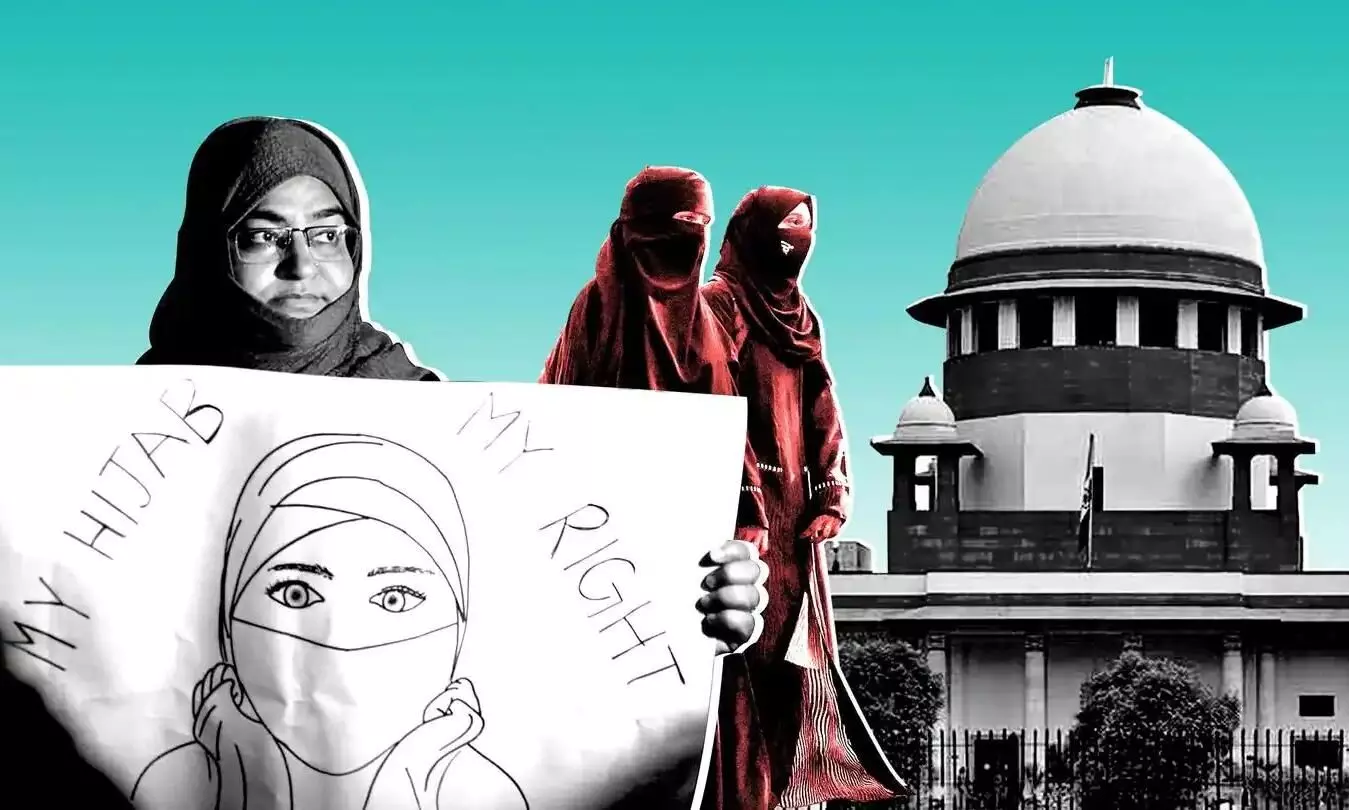
SC stays hijab ban, 'Shouldn't it be up to the girl what she wears?’
text_fieldsStaying the ban imposed on Muslim students from wearing hijabs at NG Acharya & DK Marathe College in Mumbai, the Supreme Court urged institutions not to impose such restrictive rules on students, questioning the logic behind these norms on campus in an interim order today.
This decision came amidst a legal challenge filed by students of the college who contested the ban on wearing hijabs, caps, and badges on campus.
During the hearing, the bench comprised of Justices Sanjiv Khanna and Sanjay Kumar, expressed surprise at the college's restrictive policy, questioning the necessity of such rules while names and other symbols like tilak and bindi could themselves reveal religious identities, besides questioning the rationale behind the need for students to hide their religious identities.
Justice Khanna questioned the logic behind the restrictions, asking, "How are you empowering women by telling them what to wear?", livelaw.in reported.
He highlighted that students' names and symbols like tilak and bindi could reveal religious identities and criticized the college for imposing such rules, stating, "Family members may say wear it and go and they have to wear."
Justice Kumar added, "Will you say that somebody wearing tilak will not be allowed?" and questioned if students would be identified by numbers instead of names. The bench decided to stay the college's circular but upheld the prohibition on face-covering veils like nakabs or burkhas, citing their impact on classroom interaction.
The court issued a notice for the petition returnable in the week starting November 18, urging that the stay not be misused and allowing the college to seek modifications if necessary.
The Supreme Court's intervention highlights a significant clash between institutional autonomy and individual rights. During the hearing, the bench expressed surprise at the college's restrictive policy.
The college, a private institution, had enforced the controversial dress code as part of its attempt to maintain a uniform appearance among students. However, the Supreme Court's ruling reflects a concern that such measures may inadvertently foster division rather than unity. The court emphasized the need for policies that do not compromise students' rights to practice their religion while ensuring a conducive educational environment.
The controversy began on May 1 when NG Acharya & DK Marathe College issued a notice through its official WhatsApp group, detailing a dress code that prohibited the wearing of hijabs, niqabs, burqas, caps, badges, and stoles on college premises.
The students affected by this directive initially approached the college administration, seeking the withdrawal of these restrictions. They argued that the ban infringed upon their right to personal choice, dignity, and privacy within the educational setting.
When their requests were disregarded by the college management, the students escalated the issue to higher authorities, including the chancellor and vice-chancellor of Mumbai University and the University Grants Commission. Despite their efforts to seek intervention and ensure an education free from discrimination, they received no response, prompting them to file a petition with the Bombay High Court.
In the Bombay High Court, the students' advocate presented arguments based on religious texts, asserting that the hijab is an essential aspect of Islamic practice. The petition argued that the college's ban was arbitrary and discriminatory, challenging its legality and fairness.
On the other hand, the college management defended its position by framing the dress code as a neutral measure aimed at promoting uniformity and discipline among students. They contended that the dress code was intended to apply to all students, regardless of their religion or caste.























